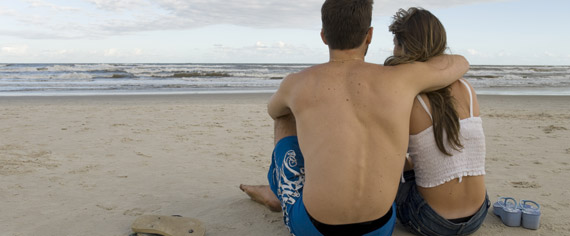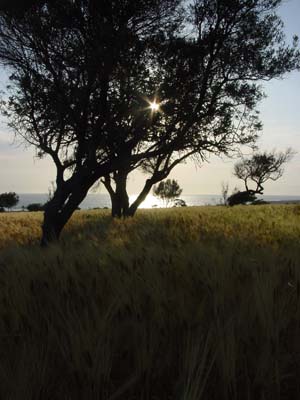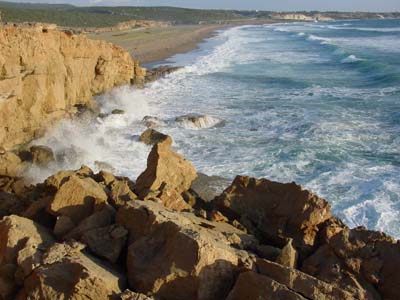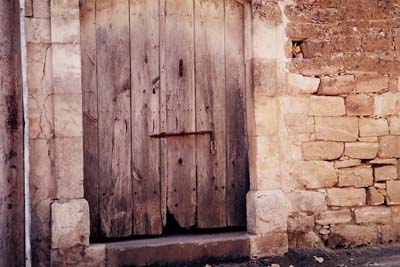
About CyprusLocation Cyprus is a sunny eastern Mediterranean island located at the crossroad of three continents, Europe, Africa, and Asia. Its strategic position gave its position in the global map. The privileged location makes Cyprus an ideal centre for international business and an exquisite place to live. Cyprus is the envy of the Mediterranean. Being the third largest Mediterranean island with an area of 9,251 sq. km., a population of around 750,000 and a history of over 9000 years, Cyprus offer a fascinating blend of diversity, culture, history, and quality of li Climate Cyprus has a healthy Mediterranean climate that boasts 300 sunshine days every year. Winters are mild. The rainy season is between November and March. The mild climate allows a wide range recreational activities, from ski on the Troodos mountain range and the Olympos slopes and water ski on the crystal clear Mediterranean sea. Language Greek is the national language. English is widely spoken everywhere on the island as a result of Cyprus being a British colony. French, German, and Russian are also becoming popular. British expatriates find it easy to settle into their new homes because of the language, the left hand driving regulations, the legal and banking systems that models that of Britain.
Banking System Cyprus banks are of the highest standard. The Cyprus banking system models the British banking system. Non-Cypriot citizens may open both foreign and local currency accounts. Many international banks are operating in Cyprus. Education English-speaking kindergarten, junior and secondary schools are available in Cyprus. In addition, there are English speaking colleges offering higher education. Telecommunications The telecommunications infrastructure in Cyprus is ranked amongst the most advanced in the world. It maintains direct connection with more than 200 countries. Internet services with ADSL connections are used both by individuals and corporations. Transportation In Cyprus all distances are easily manageable. Commuting between the cities is convenient due to a constantly extending modern motorway networks and excellent travel services. Taxis and buses are readily available to offer a reliable and frequent connection service between cities. International Flights Cyprus is being serviced by two international airports: Larnaca International and Paphos International airports. There are flights from and to Cyprus with every country in the world on a daily or weekly basis. Political System The Republic of Cyprus is an independent and sovereign state. The Cyprus Constitution provides for a Presidential system. The legislation power lies with the elected House of Representatives and appointed Council of Ministers. Both the President and the Members of the House of Representatives are directly elected at five year intervals. Cyprus is a member of the European Union, United Nations, the British Commonwealth, the non-aligned movement, the World Bank and IMF. Cyprus enjoys long-term political stability. Legal System The legal system is based on the British and European legal systems with independent power exercised by judiciary.
Health Care The standard of health care is very high and inexpensive. It compares very favourably with other European and developed countries. The majority of the health care professionals have being their training abroad, routinely in the U.K and U.S.A. Health care is provided by the state hospitals or the private hospitals and private practices. Crime rate At a time when holidays are shadowed by safety concerns, a warm feeling of security prevails everywhere on the island. Crime level is so low as to be practically non-existent. This is one of the many reasons why it is such a popular destination for tourists. Street criminality is virtually absent in Cyprus. Geography In 1974 Turkey illegally invaded and occupied the northern part of Cyprus. Still today, the 37% of the island is being illegally occupied. In the areas the Government of Cyprus have jurisdiction reside 720.000 people, mainly Greek Cypriots. Although Cyprus remains divided until today, constant peace talks are held. The border is now open for day visits. Nicosia, the capital of Cyprus, is located in the middle of the island. The other towns, all on the coast, are Limassol, Larnaca and Paphos. Economy Cyprus has an open economic system. The economy is robust and expands. It is an EU member with the euro as its national currency. Investment / Buying Real Estate in Cyprus Cyprus has enjoyed years of economic growth, robustness, macro-economic stability, and development. These characteristics have brought it to the attention of serious investors from all over Europe and beyond. After Cyprus joined European Union in May 1st 2004, EU nationals can establish most types of companies in Cyprus and own them 100%. Businesses in Cyprus enjoy favourable tax incentives. In addition, Cyprus has a number of double tax treaties with most countries of the European Union, as well as other countries throughout the world that eliminate double taxation and allow a very efficient tax planning for individuals and corporations alike. In practice, the tax levied by one country is credited against the tax levied in the taxpayer’s country of residence. Buying property in Cyprus is simple and easy. European Union (EU) citizens have no restriction on the amount of land they can buy. Non-EU citizens can purchase a freehold property (house, apartment, plot, or parcel of land) up to 4014 sq. meters maximum.
|

 Profile
Profile fe. Today, history and modern life are harmonically intertwined on the island. Cyprus has been a full member of the European Union since May 1st 2004. It has enjoyed years of political stability, economic growth and development that has brought it to the attention of investors from all over Europe and beyond.
fe. Today, history and modern life are harmonically intertwined on the island. Cyprus has been a full member of the European Union since May 1st 2004. It has enjoyed years of political stability, economic growth and development that has brought it to the attention of investors from all over Europe and beyond.
